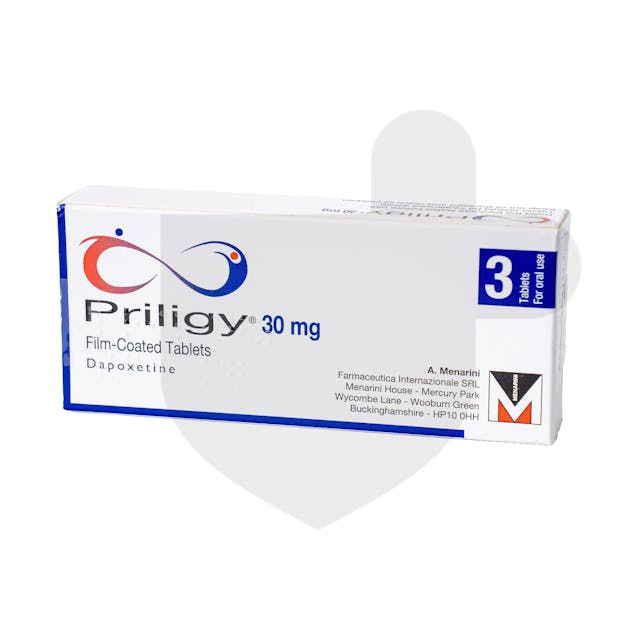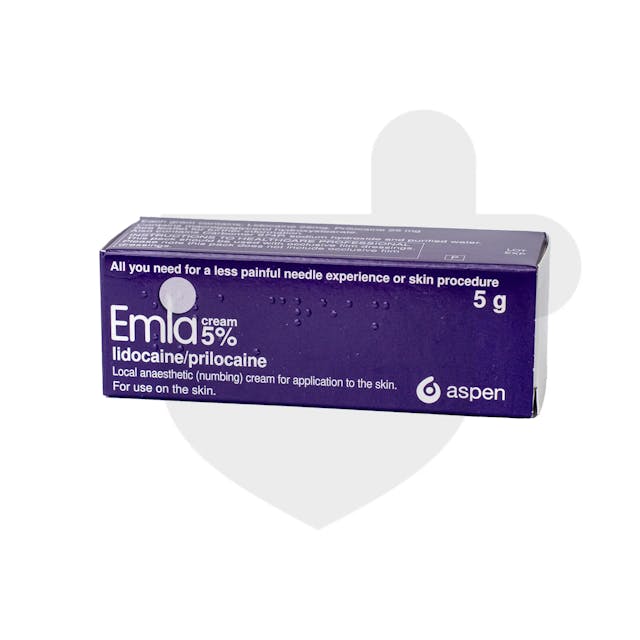Premature Ejaculation
Treatment & Medications
With NowPatient's private treatment plans you can treat Premature Ejaculation safely and easily in a few simple steps. Get started by selecting the available treatments you are interested in below or by hitting the start consultation button.
This content is intended for UK audiences only
Available treatments
Compare treatments
Get started with the right treatment for you
Treatments & Medications
delivery
service

Premature ejaculation is a common type of sexual dysfunction that occurs when an individual ejaculates sooner than desired during sexual activity. It can lead to frustration, embarrassment, and relationship problems. In this comprehensive guide, we will explore the causes, symptoms, and various treatment options for premature ejaculation.
Understanding Premature Ejaculation
Premature ejaculation is defined as the inability to delay ejaculation for a satisfactory amount of time during sexual intercourse. While there is no specific time frame for how long a person should last, if ejaculation occurs consistently within a minute or shortly after penetration, it may be considered premature ejaculation. Some men may ejaculate during foreplay. This condition can occur in both lifelong (primary) and acquired (secondary) forms.
Causes of Premature Ejaculation
Premature ejaculation can have both psychological and physical causes. Psychological factors include anxiety, stress, depression, guilt, and relationship problems. Negative feelings about sex and performance anxiety can also contribute to premature ejaculation. On the other hand, physical factors such as underlying erectile dysfunction, imbalances in hormone levels, inflammation or infection of the prostate gland or urethra, using recreational drugs, and genetic traits can play a role in this condition. On rare occasions premature ejaculation may result from nervous system damage due to trauma or surgery.
Diagnosing Premature Ejaculation
If premature ejaculation is causing distress or affecting your sex life, it is important to consult a healthcare provider. They will conduct a physical examination, discuss your medical history and any other medical conditions you may have, and ask about your sexual experiences. In some cases, laboratory tests may be ordered to rule out any underlying health conditions. Open communication with your healthcare provider is crucial for an accurate diagnosis.
Behavioral techniques for managing Premature Ejaculation
Behavioral techniques are often the first line of treatment for premature ejaculation. These techniques aim to improve control over ejaculation and delay orgasm. Two commonly recommended methods are the stop-start technique and the squeeze technique. The stop-start technique involves stimulating the penis until you feel close to orgasm, then pausing the stimulation until the sensation subsides. The squeeze method involves applying pressure to the base of the penis to temporarily reduce arousal. These techniques can be practiced alone or with a partner and may require time and practice to be effective.
Therapy for premature ejaculation may also include simple steps, such as masturbating 1 or 2 hours before sexual intercourse, allowing you to prevent early ejaculation when having sex with your partner.
Pelvic floor exercises for Premature Ejaculation
Weak pelvic floor muscles may contribute to premature ejaculation. Strengthening these muscles through pelvic floor exercises, also known as Kegel exercises, can help improve ejaculatory control. To perform Kegel exercises, identify the muscles used to stop urination midstream or prevent the release of gas. Contract these muscles for a few seconds, then relax them. Repeat this exercise multiple times a day to strengthen the pelvic floor muscles.
Medications for Premature Ejaculation
In some cases, medications may be prescribed to help manage premature ejaculation. Antidepressants, such as tricyclic antidepressants (clomipramine) and particularly selective serotonin reuptake inhibitors (SSRIs), have been found to be effective in delaying ejaculation. SSRIs (such as paroxetine, sertraline, fluoxetine, or dapoxetine) work by increasing serotonin levels in the brain, which can have a positive impact on ejaculatory control. However, it’s important to note that these medications are not specifically approved for treating premature ejaculation, but may be prescribed off label (for a different reason other than the drug’s original use). Other medications, such as anesthetic creams or sprays containing lidocaine or prilocaine, may be applied to the head of the penis to reduce penile sensitivity and delay ejaculation.
Psychological counseling for Premature Ejaculation
Psychological counseling can be beneficial for individuals experiencing premature ejaculation, especially when it is related to underlying psychological factors such as anxiety, depression, or relationship problems. A mental health professional or sex therapist specializing in sexual issues can help address these concerns and provide guidance on coping strategies, communication skills, and techniques to manage performance anxiety.
Combination therapy for Premature Ejaculation
In some cases, a combination of behavioral techniques, medications, and counseling may be recommended for the management of premature ejaculation. Each individual’s treatment plan should be tailored to their specific needs and circumstances. Working closely with a healthcare provider or a specialized sexual health professional can help determine the most effective approach.
Communication and support for Premature Ejaculation
Premature ejaculation can have a significant impact on a person’s self-esteem and relationships. It is essential to communicate openly with your partner about the issue and seek support. Engaging in honest discussions, expressing emotions, and exploring intimacy beyond intercourse can help strengthen the emotional connection. Couples therapy or sex therapy may also be beneficial in addressing sexual relationship dynamics and improving sexual satisfaction.
Lifestyle modifications for Premature Ejaculation
In addition to medical interventions, certain lifestyle modifications may help manage premature ejaculation. Maintaining a healthy lifestyle, managing stress levels, getting regular exercise, and practicing relaxation techniques can contribute to overall sexual well-being. Avoiding excessive alcohol consumption, illicit drug use, and smoking can also have a positive impact on sexual function.
Frequently asked questions for Premature Ejaculation
What is Premature Ejaculation?
Premature ejaculation is defined as the inability to control ejaculation, resulting in ejaculation occurring sooner than desired, often within a minute or shortly after penetration. It can lead to feelings of embarrassment, self-consciousness, and dissatisfaction with sexual encounters. Contrary to common belief, premature ejaculation is not solely based on the timeframe of ejaculation but rather the lack of control and satisfaction experienced.
Who is affected by Premature Ejaculation?
Premature ejaculation can affect men of all ages and ethnic backgrounds. It is not limited to young men but can also be prevalent among older individuals. It is important to note that the prevalence of premature ejaculation is higher than most people realize, with up to one in three men experiencing this issue. However, due to the stigma surrounding it, many individuals do not discuss their struggles openly, leading to a misconception that it is less common than it actually is.
What causes Premature Ejaculation?
Premature ejaculation can have both biological and psychological causes. Psychological factors such as anxiety, low confidence, performance anxiety, and relationship issues can contribute to premature ejaculation. On the other hand, biological factors like hormonal imbalances, neurotransmitter dysfunction, and physical health conditions can also play a role. It is essential to understand that premature ejaculation is a complex issue with multifaceted causes, and addressing both psychological and biological factors is crucial for effective treatment.
Does anxiety cause Premature Ejaculation?
Contrary to popular belief, studies have shown that anxiety levels in men with premature ejaculation are generally normal. While anxiety can contribute to sexual performance issues, it is not the sole cause of premature ejaculation. It is important to recognize that premature ejaculation is primarily considered a physical problem, involving hypersensitivity to penile stimulation. However, psychological factors can exacerbate the issue, making it essential to address both aspects for successful management.
How do I know I have Premature Ejaculation?
Diagnosing premature ejaculation involves a thorough assessment of medical and sexual history. Your doctor will inquire about the frequency and duration of premature ejaculation episodes, as well as any situational patterns. Physical examinations may be conducted to rule out underlying health conditions that could contribute to premature ejaculation. Open communication with your healthcare provider is crucial for an accurate diagnosis and effective treatment planning.
What are the effects of Premature Ejaculation?
Premature ejaculation can have a significant impact on both individuals and their partners. It can lead to feelings of low self-confidence, shame, and avoidance of sexual intimacy. Dissatisfaction with sexual experiences can strain relationships and hinder overall sexual satisfaction. Therefore, it is important to address premature ejaculation promptly to prevent further negative consequences and improve the overall quality of life.
Can Premature Ejaculation be treated with medication?
Medication is not always necessary to treat premature ejaculation. In many cases, behavioral techniques and psychological interventions can effectively manage premature ejaculation. However, in certain instances, medication may be prescribed to address underlying biological factors contributing to the condition. Selective Serotonin Reuptake Inhibitors (SSRIs) are commonly used to treat premature ejaculation due to their side effect of delayed ejaculation. It is crucial to consult with a healthcare professional to determine the most appropriate treatment approach for your specific situation.
What other treatment options are available for Premature Ejaculation?
Aside from medication, various other treatment options can be beneficial for premature ejaculation. Behavioral techniques, such as the pause and squeeze technique, can help individuals gain better control over their ejaculation response. Kegel exercises, which target the pelvic floor muscles, can also be effective in enhancing ejaculatory control. Additionally, counseling and therapy can address psychological factors contributing to premature ejaculation and provide valuable coping strategies. It is important to explore these options under the guidance of a healthcare professional to ensure optimal results.
Can alternative therapies help with Premature Ejaculation?
Alternative therapies, such as yoga and relaxation techniques, have shown promise in managing premature ejaculation. Specific yoga poses, such as Sarvangaasana and Uttanapadasana, can help improve sexual stamina and control. Climax delaying gels and condoms can also be utilized to prolong ejaculation. However, it is crucial to note that the effectiveness of these alternative therapies may vary among individuals. Consulting with a healthcare professional can help determine the most suitable approach for your specific needs.
When should I get professional help for Premature Ejaculation?
If premature ejaculation is causing sexual problems and is significantly impacting your relationships, or overall quality of life, it is advisable to seek professional help. A urologist, sexologist, or sexual health specialist can provide specialized guidance and develop a tailored treatment plan based on your specific needs. Remember, addressing premature ejaculation is not a sign of weakness but rather a proactive step towards enhancing your sexual well-being.
Conclusion
Premature ejaculation is a common sexual issue that can be caused by both psychological and physical factors. With proper diagnosis and treatment, it can be effectively managed. Behavioral techniques, pelvic floor exercises, medications, psychological counseling, and lifestyle modifications can all play a role in improving ejaculatory control and enhancing sexual satisfaction. Remember, open communication with your healthcare provider and partner is key to finding the most suitable treatment approach for you.
Sources
- NHS – Premature Ejaculation
- Urologyhealth – Premature Ejaculation
- Mayoclinic – Premature Ejaculation
- Clevelandclinic – Premature Ejaculation
- Webmd – Premature Ejaculation
Medical Disclaimer
NowPatient has taken all reasonable steps to ensure that all material is factually accurate, complete, and current. However, the knowledge and experience of a qualified healthcare professional should always be sought after instead of using the information in this page. Before taking any drug, you should always speak to your doctor or another qualified healthcare provider.
The information provided here about medications is subject to change and is not meant to include all uses, precautions, warnings, directions, drug interactions, allergic reactions, or negative effects. The absence of warnings or other information for a particular medication does not imply that the medication or medication combination is appropriate for all patients or for all possible purposes.
What is NowPatient
Telehealth and Online Pharmacy
NowPatient is a licensed online pharmacy and doctor service that is available around the world. Our service is FREE and packed with valuable features that can benefit your health such as medication reminders, educational blogs, medically approved symptoms checker, UK NHS online pharmacy, private treatment plans, Rx Advantage card, health conditions information, affordable medications options, genetic testing, home test kits, health risks, pollen meter, air quality monitor, weight loss plans, drug savings programs and lots more!

WHY WE BUILT NOWPATIENT
To improve the lives of everyone by making high-quality care accessible and convenient
We are here to improve lives. Our service gives you access to smart features and resources that can help empower you to take control of your health and improve your health outcomes. All this, in one place, for FREE. We strive to bring a fresh perspective to managing health. NowPatient can be accessed by downloading the App or using your web browser.
Download our app today

Can I trust NowPatient
Meet our medical team
We are a passionate group of clinicians and medical writers covering a broad range of specialities with experience operating in health systems in the United Kingdom & United States. Providing excellent care and advice is at the heart of everything we do. You can read more about our medical team by visiting the medical team page or learn more about how we curate content by visiting our editorial process

